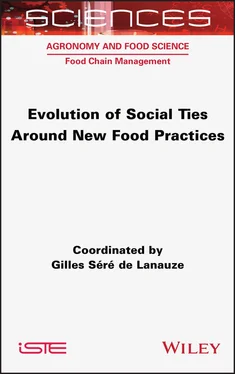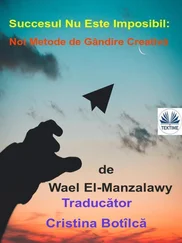The traditional meal that sealed the nuclear family and synchronized the home with neighboring households is gradually disintegrating as individualization of rhythms and digital nomadism become more powerful. We are seeing a similar pattern in many areas: the shift away from TV to targeted and personalized digital media, the erosion of the mainstream and the rise of more niche propositions in health, hygiene and beauty.
It seems that, in this period, what divides becomes more valued than what brings people together, even in the last bastion of living together: the meal.
Division, because today there is no more consensus about the direction of progress since this remains unresolved in the face of the ecological and economic crisis that had plagued our future even before Covid-19. From then on, several ideological currents have been fighting for the reins of progress to correct its trajectory. Degrowth and alternative thinking, affirmation and identity-based withdrawal, or belief in all-powerful technology, it is now necessary to choose our camp, our society, our future, our values; otherwise, a competing future might arise.
As this collective work demonstrates, such confrontation extends to our plates: eating is becoming an increasingly ideological and identity-based act, perhaps like all consumption. Qualified as vegetarian, vegan, religious, spiritual, hygienist, performist, meals and ways of eating increasingly divide the usual collectives and recompose networks that follow the divergent forces of today’s ideologies.
This is an important statement with far-reaching consequences: first, because it announces the ambivalence of the role of the meal, which becomes as much an act of secession as of gathering. Tell me what you eat, I will tell you who you are not. Or tell me what you refuse to eat, and I will tell you who you are fighting. Then, of course, because it is changing the entire food universe, opening up new offers in new ecosystems for a total food experience: political, communal, but also esthetically pleasing, i.e. Instagrammable .
Finally, it makes you think beyond food, by reflecting one of the great paradoxes of our time in a stressful and isolating world: the contradictory need to join AND escape the collective.
In a recent survey for the World Economic Forum (September 2020), Ipsos notes that 72% of citizens in 15 countries clearly want the post-Covid-19 world to be decidedly different from the one before. But will we be able to all agree on this difference when our capacity to accept and manage otherness has probably never been so low? Or are we heading for competing microworlds?
Will the next generations be able to resolve this paradox, starting with the subject of food, which we know is a cultural pillar of Generation Y? How will the Covid-19 crisis influence these food mutations? Will it accelerate our food identity by reducing opportunities to eat together? Or will it, on the contrary, encourage a resurgence of the need to be together when the lockdowns are over?
So many questions that make this book essential for those who want to understand and anticipate the current evolution of social phenomena around food.
July 2021
This book was supported by the Montpellier Research in Management laboratory of the University of Montpellier (MRM-Axe Agro-Alimentaire) in partnership with the UMR MoISA of Montpellier.
All the co-authors would like to warmly thank Professor Jean-Marc Ferrandi for his precious advice, help and support in the editing process of this book.
Laurie Balbois a teacher-researcher at the Grenoble École de Management. Her work is mainly in the field of Social Marketing and, more precisely, on the study of factors that can affect consumer eating behavior.
René Pierre Beylierholds a doctorate in management sciences and teaches at the IPAG in Nice and at the universities of Montpellier and Avignon. A member of the MRM Laboratory (Montpellier), his work focuses on the territorial legitimacy of retailers and on consumer behavior, particularly with regard to local brands and products.
Foued Cherietis a lecturer in international strategy and food marketing at the Institut Agro-Montpellier SupAgro and a member of UMR MoISA. He conducts research on the strategies of agribusinesses, agricultural sectors and entrepreneurship. Some of his work focuses on ethnic consumption (diaspora/dates, halal meat).
Margot Dyenis a lecturer at the University of Savoie Mont Blanc and a member of the Institut de Recherche en Gestion et en Économie (IREGE). Her work focuses on healthy and sustainable food practices and on well-being, in a social marketing perspective.
Fatiha Fortis a professor of marketing and consumer behavior at the Institut Agro-Montpellier SupAgro. She is a researcher at UMR MoISA where she conducts research on the marketing of local and regional products and on sustainable food consumption.
Steffie Gallinis a doctor of management sciences and a teacher-researcher at Montpellier Business School. Her research works focus on eating behaviors, social networks, online communities and social influence.
Andréa Gourmelenis a lecturer at the University of Montpellier (IUT Montpellier-Sète) and a member of the the MRM laboratory (Montpellier). Her work focuses on lifelong nutrition (students and seniors) and its evolution over time in relation to life events.
Félix Jourdanis a doctoral student in sociology at INRA in Montpellier. His thesis work focuses on the issues surrounding religious ritual slaughter in slaughterhouses. More broadly, Jourdan is conducting research on the evolution of norms, representations and practices of livestock killing.
Guillaume Le Borgneis a lecturer at the University of Savoie Mont Blanc and a member of the Institut de Recherche en Gestion et en Économie (IREGE). His research focuses on food waste and nutritional choices.
Marie-Christine Lichtléis a university professor in management sciences (marketing specialization) at the University of Montpellier. Her research areas are communication, consumer behavior and social marketing. Her recent work focuses on food behavior.
M’hamed Merdjihas been a full professor at Montpellier Business School since 1999. His expertise is mainly in surveys, data analysis, market research and strategic marketing at national and international levels.
Thibaut Nguyenis in charge of the Trends & Prospective Department within Ipsos, the French research institute. As a futurologist, Thibaut helps private and public players understand and anticipate the key dynamics that are shaping our society, impacting the way we will think, act and consume in the future.
Andry Ramarosonis a lecturer at the Centre Universitaire de Mayotte. His work focuses on the analysis of individual behaviors (household, business, etc.), entrepreneurship and innovation, and business performance. He is a member of the CHROME (Nîmes) and MRM (Montpellier) Laboratories.
Gilles Séré de Lanauzeis a professor at the University of Montpellier. He is in charge of the agri-food arm of the MRM Laboratory (Montpellier). He conducts research in consumer behavior on attitude/behavior gaps and responsible consumption.
Lucie Sirieixis a member of UMR MoISA and professor at the Institut Agro Montpellier SupaAgro where she teaches marketing and food consumption. Her research focuses on consumer relations to sustainability, with a social marketing approach.
Erick Suarez-Dominguezis a doctoral student in management sciences, specializing in marketing, at the University of Montpellier. His thesis work focuses on the effects of social influences on vegetarian and vegan consumption behaviors.
Читать дальше












